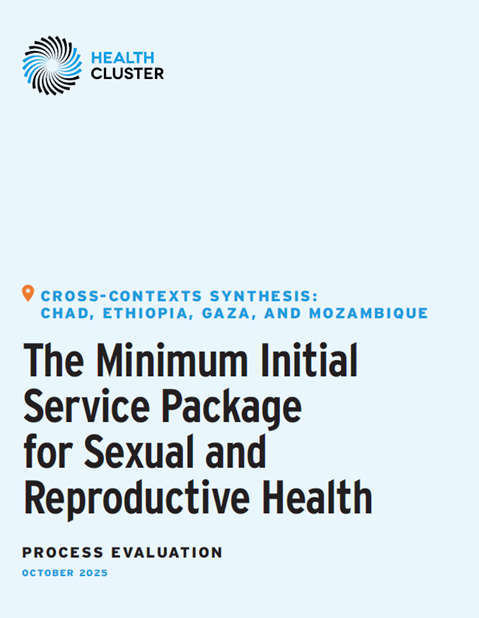The Minimum Initial Service Package for Sexual and Reproductive Health
Cross-contexts synthesis

Overview
The Minimum Initial Service Package (MISP) for Sexual and Reproductive Health (SRH) in crisis situations, developed by the Inter-Agency Working Group on Reproductive Health in Crises (IAWG), comprises the minimum lifesaving SRH needs that humanitarians must address at the onset of an emergency. It includes six key objectives: 1) Ensure the Health Sector/Cluster identifies an organization to lead implementation of the MISP, 2) Prevent sexual violence and respond to the needs of survivors, 3) Prevent the transmission of and reduce morbidity and mortality due to HIV and other STIs, 4) Prevent excess maternal and newborn morbidity and mortality, 5) Prevent unintended pregnancies, 6) Plan for comprehensive SRH services, integrated into primary health care as soon as possible and an additional objective for preventing mortality and morbidity due to unintended pregnancy by ensuring safe abortion care to the full extent of the law. The MISP provides a roadmap for communities to deliver critical care in crisis while laying a foundation to transition to a more comprehensive suite of SRH services (ideally within 3 to 6 months) as communities recover.
In 2024-2025, the Global Health Cluster SRH Task Team undertook process evaluations of MISP implementation in selected humanitarian settings. The objectives of these cross-sectoral, mixed methods case studies were to evaluate MISP implementation within crisis-affected settings in Chad, Ethiopia, Gaza, and Mozambique and to inform recommendations and policies to strengthen consistent and accountable MISP implementation moving forward.
Below are abridged summaries of the Process Evaluations for each context, apart from Chad which is the full report. To request full reports for Mozambique, Ethiopia or Gaza, please email andrea.edman@rescue.org.
